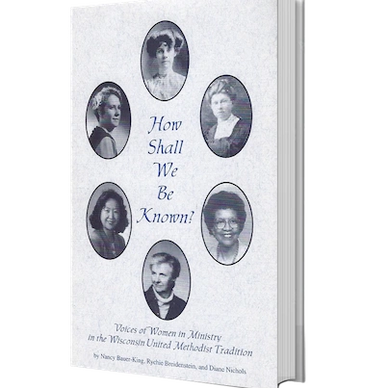The basics of Nancy Bauer-King’s story are far too common: a global pandemic, a beloved spouse in memory care, and a set of protocols that kept her from being at his side in his last months and at the moment of his death. Forced to journey grief’s path without the usual rituals to connect her to others and her memories of Charlie, Nancy struggled. Then one day, she happened upon a treasure trove: boxes filled with sermons from Charlie’s 60 years as a United Methodist pastor—many that had been preached before they’d ever met—a whole new window into the man she’d known and loved.
The compendium of his thoughts and beliefs and teachings provided a focus for her grief. Soon, she was writing back to him: reflections, rebuttals, reminiscences. She had started on the path to healing. Sometimes funny, sometimes argumentative, always thought-provoking, Nancy’s dialogue with Charlie and these selected sermons shows us the power of love and the benefit of “carrying on the conversation” with our loved ones even after their physical bodies have passed on.
How does an eighty-year-old woman survive in a patriarchal culture with a husband who is losing his memory? As a retired clergywoman, the impetus for writing was my conflict with the preponderance of male imagery in my religious experiences, as well as the broader culture. Little Feet Be Careful consists of short reflections on topics such as religious indoctrination, political frustration, dealing with Covid-19, childhood experiences, family stories, stories of goddesses, quotes from a variety of sources, my husband’s dementia and death, and oh yes... a few poems.
After an intense religious seminar, Nancy Bauer-King became convinced she needed to kill herself to prove her love for God.
She was hospitalized and diagnosed psychotic. Her psychiatrist did not permit her to talk about God, her church avoided discussing mental illness, and she started writing as therapy to find meaning in the voice she experienced between tenets of religion and psychology. This is her story of breakdown followed by breakthrough that helped restore her emotional balance and rediscover her sense of humor. Her story is one of hope, especially for readers who experience mental distress related to Christian doctrine.

When the time comes to tend to an aging parent, how do you manage to take care of yourself?
For Trudy, Lauren, Judith, and Nancy, the answer was found in each other.
After meeting at a writers’ support group, the four women soon bonded over a common factor—they all had concerns about the health of their mothers, and topics of physical, emotional, and spiritual well-being grew to dominate their conversations.
For three years, the women documented every reflection they shared, in an attempt to find their ways through the complex maze of caring for their mothers during their final stages of life. No topic was left untouched and no emotion was left unfelt during these profound and difficult times.
Poignant, humorous, and raw, each chapter contains four essays from four very different perspectives, which together craft an honest and realistic view of the tough topic of end-of-life care.
For at least 25,000 years humanity worshiped feminine images of the divine. Then it all changed, and for the past 6,000 to 8,000 years virtually all mainstream religions have conceived of the divine primarily in masculine terms. We now find ourselves at another transformational time in history regarding our understanding of the divine. It is a time in which we are becoming increasingly aware that no one image, and certainly no one gender, can adequately convey the totality of the ultimate divine mystery of the universe..
This collection of interviews, newspaper articles, biographies, and poetry tells of the joys and sacrifices of Christian women, willing and determined to serve God--whatever the obstacles. Here are missionaries, pastor's wives, deaconesses, clergy, educators and musicians. Women of Wisconsin, even before it was a state.





